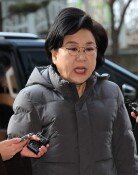[Opinion] Young Politicians
To increase the voting rate, the voting age has fallen to 13, and high school students, who complain that there is no candidate who they feel like voting for, establish a new party. This is story of Mosquito, 1997s hit rock musical. In this musical, they name the party Mosquito and win a landslide election victory thanks to political allegations they list. They promise that they wont do anything that harms their morality, they wont commit corruption, and they wont represent the particular voice of a certain power group. This promise appealed not only to teenage voters but also to adults who are sick and tired of existing politics.
Let us assume that such thing happens in the real world or its sequel is produced later. In that case, can we say that young politicians really play politics better than adults as the story says? If we look at what Lee Gye-deok answers, we would realize that it is the wrong assumption. Lee, 19, who was elected as a representative of the Democratic Labor Party last February when he was just a third-year high school student, sent his written report on secession from the party through the internet, and returned to being an ordinary high school student from a politician. Lee explained that power struggles among youth organizations were no less fierce than those of adult politician groups. Why young people who pledged that they wouldnt do the same things as adults bite each other like adults and always confront each other despite the same goals they are seeking?
In fact, it is not a rare case that people calling for reformation and change when entering the political field suddenly commit serious misdeeds that dwarf what they criticized senior politicians for in the past. However, this is a very unfortunate case because it is not related to adult politicians but to young people. Defamation, personal attacks, and aspersion dominate the discussion of our new generations. It is shocking that they criticize each other by saying, You are an opportunist only seeking the good grace of powerful politicians and You are a backslider. How sad it is! People say that if you hate someone, you will unconsciously take after them. Does it work in this case? Or, after once dabbling in political activities, does everyone change like that?
The recent issue of the American Political Science Review stressed that peoples tendencies toward being aggressive on matters related to politics and ideology has something to do with genetics. Therefore, it concluded that cooperation and integration that are not engaged in partition is not feasible. Fortunately, what Lee hates is not politics but political struggles. He expressed that despite the limitation of real politics, we should form political environments that allow young people to participate in politics without difficulties. From now on, I want all of us to lead new movement that helps create a political field without fighting.
Kim Sun-duk, Editorial Writer, yuri@donga.com







